What Doesn’t Make you Stronger, Kills You.
What you should know about critiques.
Anyone attempting anything creative has to face criticism. Whether you are seeking an informed opinion, or dealing with online comments, the words can sting. While I have easily forgotten the nice words and positive critiques of my work, I vividly remember the times when my work has been torn apart with negative reviews. Show your work enough, and soon you will have a collection of bad and weird reviews, the important thing is to not let them keep you from creating and growing.
Years ago a friend of mine insisted I show my work to a well known National Geographic photographer. I went in simply to share my work with him, but I got a full critique. He told me all the ways my work was inappropriate or would have to change if I wanted to get it in “The Geographic.” The only problem was, I have never wanted to be in National Geographic. It was never a goal, or a dream for me. Great magazine, with great photographers, but it is very far from my style. I listened politely to the review, thanked him for looking at my work, and left it at that.
Another painful critique came years ago in a class I was taking from a successful fashion and celebrity photographer. His review ripped my first assignment to shreds, the rest of the class was taken aback at the brutality. The issue was not the quality of my work, but my model and her weight. She was a beautiful woman, not overweight by any definition. But she wasn’t an anorexic young girl, so this wan’t going to cut it in the fashion world. He was right, I didn’t agree with the standards of the fashion industry, but he was right about what their standards were. For the next assignment I gave him shots meeting that standard, and he praised them with as much vigor as he had berated the previous work. Ultimately it was a good learning experience for me, and I have used that knowledge since then while working on some shoots for a plus size clothing line.
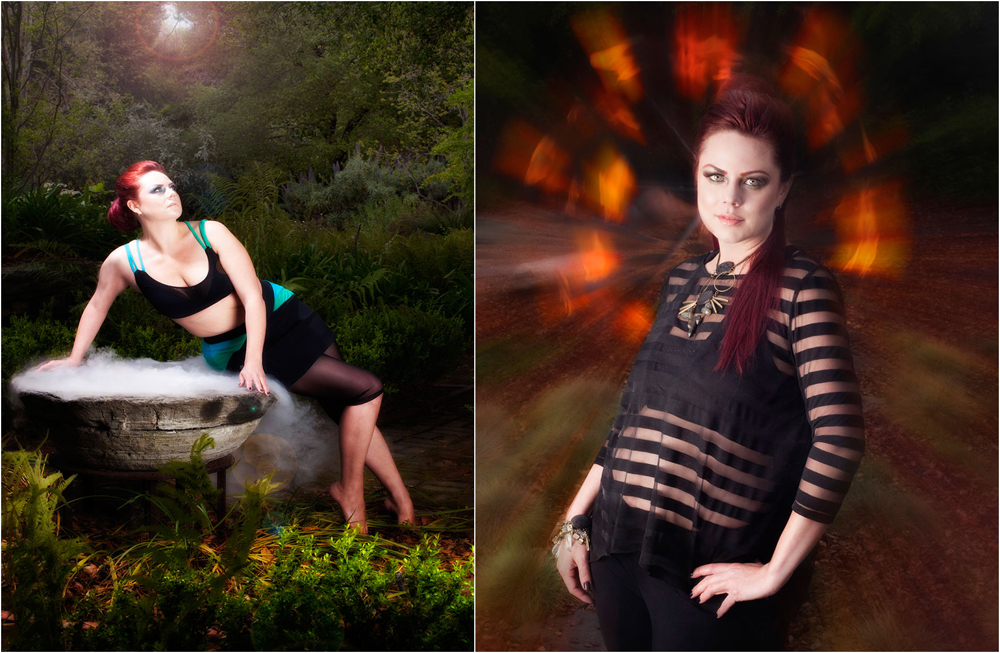 It took awhile to put these critiques in their proper context, and judge whether they were accurate and if it was advice I should follow. With time I came to know what made a valid review and what should be actively ignored. Here is what I have learned about having other people comment on your work.
1. It is going to hurt. Ignore people who say you need a thick skin, or they are only criticizing your work and not you. Artists need to be sensitive. To create good work you need to see and feel things others don’t. Above all you need to care about what you create. If you are so distant from your images you don’t care when someone says, “it sucks,” then maybe you shouldn’t be an artist.
2. Consider the source. You should pay attention only to critiques coming from people who know more than you, or who offer a unique point of view. Evaluations should come from people you respect, and if possible from photographers who create the kind of work you want to create. Everyone has a bias - I’m not a big fan of landscape work. Even if your work is better than Ansel Adams, you will probably fail to excite me. That is my deficiency, not yours. The person looking at your work will not reveal their biases. You have to figure them out. Look at their work beforehand if they are a photographer. If you are being reviewed by an editor, then look at the work they choose for publication.
It took awhile to put these critiques in their proper context, and judge whether they were accurate and if it was advice I should follow. With time I came to know what made a valid review and what should be actively ignored. Here is what I have learned about having other people comment on your work.
1. It is going to hurt. Ignore people who say you need a thick skin, or they are only criticizing your work and not you. Artists need to be sensitive. To create good work you need to see and feel things others don’t. Above all you need to care about what you create. If you are so distant from your images you don’t care when someone says, “it sucks,” then maybe you shouldn’t be an artist.
2. Consider the source. You should pay attention only to critiques coming from people who know more than you, or who offer a unique point of view. Evaluations should come from people you respect, and if possible from photographers who create the kind of work you want to create. Everyone has a bias - I’m not a big fan of landscape work. Even if your work is better than Ansel Adams, you will probably fail to excite me. That is my deficiency, not yours. The person looking at your work will not reveal their biases. You have to figure them out. Look at their work beforehand if they are a photographer. If you are being reviewed by an editor, then look at the work they choose for publication.
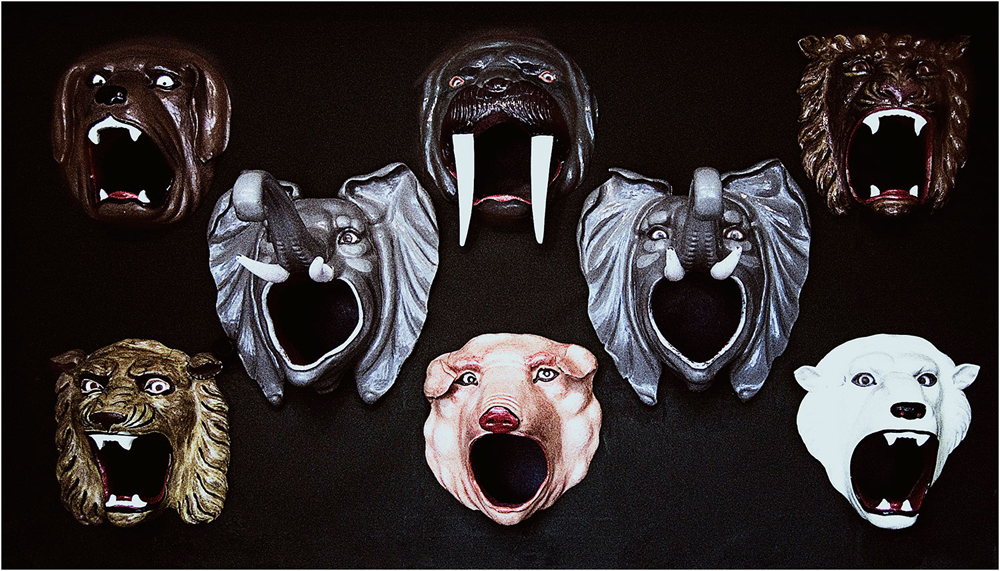 3. Know your intention. To get good feedback on your work, reviewers need to know what your were intending to do, what your goal for the image was. You must be clear on this. If your goal is not clear from the image, a good reviewer will ask you. If you can’t tell them why you took the shot, and what were trying to communicate, they can only do so much. If you don’t know your destination, how will you know when you get there?
4. Shut up and listen. Answer any questions offered but otherwise remain silent. Don’t try to defend your work, listen to all the reviewer has to say. Hold your questions until the end. Write down what they are saying. It is amazing how quickly you can forget what someone says in an emotional environment. They might have really liked your work, but you only come away with how they didn’t like the retouching, or some minor element. Listen then ask, and write it all down so you can review later.
3. Know your intention. To get good feedback on your work, reviewers need to know what your were intending to do, what your goal for the image was. You must be clear on this. If your goal is not clear from the image, a good reviewer will ask you. If you can’t tell them why you took the shot, and what were trying to communicate, they can only do so much. If you don’t know your destination, how will you know when you get there?
4. Shut up and listen. Answer any questions offered but otherwise remain silent. Don’t try to defend your work, listen to all the reviewer has to say. Hold your questions until the end. Write down what they are saying. It is amazing how quickly you can forget what someone says in an emotional environment. They might have really liked your work, but you only come away with how they didn’t like the retouching, or some minor element. Listen then ask, and write it all down so you can review later.
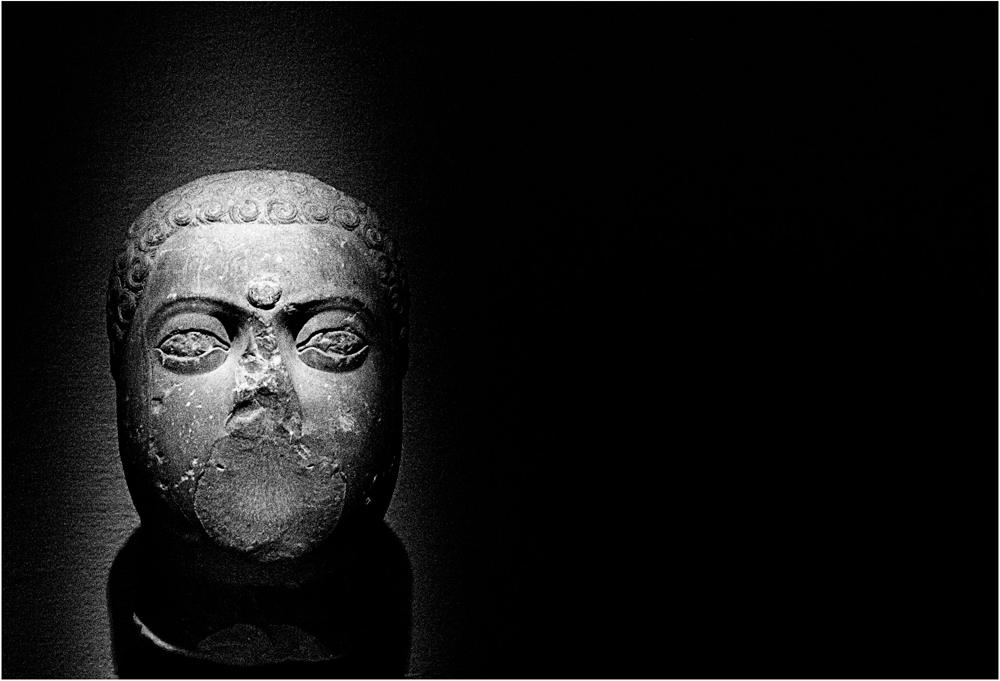 5. Eventually you become your best critic. The more you know, the less people can tell you. As you shoot more and develop your style, there will only be a handful of people qualified to give you feedback. Once you know how to create images that match your vision, you are beyond most people’s ability to give you feedback. There will only be a few people who will be able to help you, treat them like gold.
6. Ignore the haters, and your family. Some people will always hate what you do, and some will always love it, ignore them both. Don’t let trolls make you feel bad about your work, they are not qualified to judge you. And unless you live in a family of photographers, what your mom thinks doesn’t count either. You can enjoy the nice comments, but keep them in check, they would love you even if you sucked, bear that in mind.
5. Eventually you become your best critic. The more you know, the less people can tell you. As you shoot more and develop your style, there will only be a handful of people qualified to give you feedback. Once you know how to create images that match your vision, you are beyond most people’s ability to give you feedback. There will only be a few people who will be able to help you, treat them like gold.
6. Ignore the haters, and your family. Some people will always hate what you do, and some will always love it, ignore them both. Don’t let trolls make you feel bad about your work, they are not qualified to judge you. And unless you live in a family of photographers, what your mom thinks doesn’t count either. You can enjoy the nice comments, but keep them in check, they would love you even if you sucked, bear that in mind.
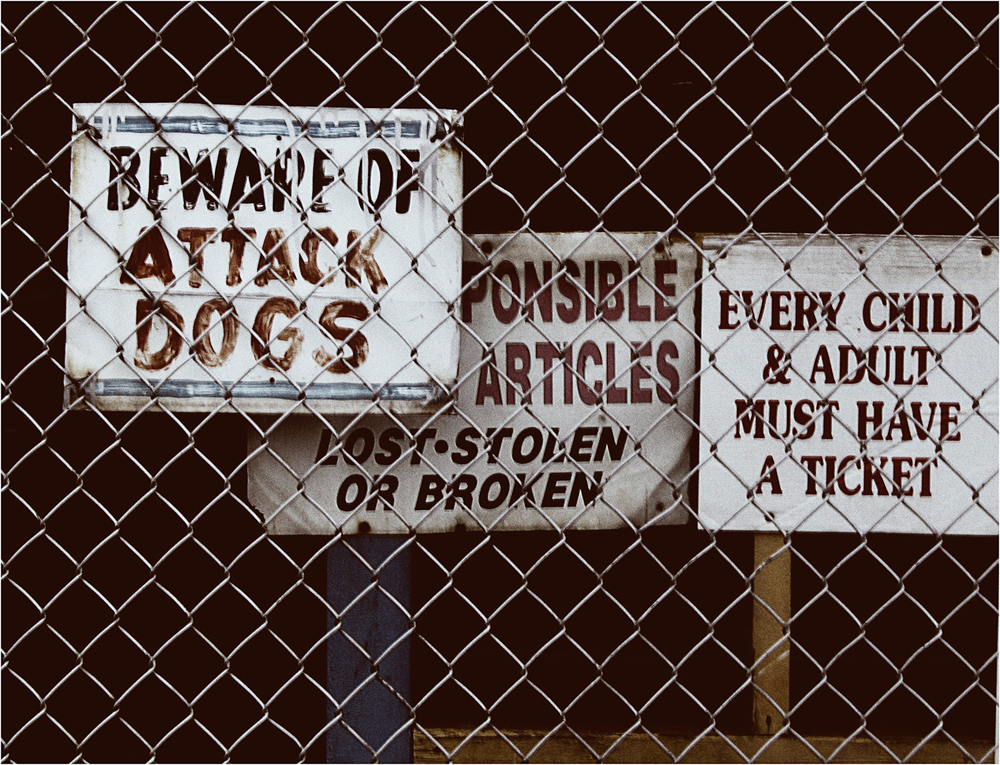 7. A good critique is not all bad. All critiques should start with what is good about the work, and then proceed to what needs improvement. If the reviewer only has bad things to say about your work, they either have a bias, don’t like you personally, are having a bad day, or don’t know how to critique. Is it possible someone sucks so bad at being a photographer there is nothing good to say about the work? It’s possible, but they would have to work very hard to be that bad.
8. A good review is specific. The comment “Your photographs suck,” and “Your work is amazing,” have something in common. They are both useless statements when it comes to growing as a photographer. They only tell you someone likes or doesn’t like your work. They do not tell you what is good and what is bad and that is what you need to know.
9. A good review tells you what to change. You need specific statements about your work so you know what to change for next time. “I would not use a wide angle lens on this type of portrait as it makes the subject’s nose look bigger,” is the kind of comment you want. It tells you what to change and why. It gives you something to test next time you shoot. If you are not getting specifics, then ask for them.
7. A good critique is not all bad. All critiques should start with what is good about the work, and then proceed to what needs improvement. If the reviewer only has bad things to say about your work, they either have a bias, don’t like you personally, are having a bad day, or don’t know how to critique. Is it possible someone sucks so bad at being a photographer there is nothing good to say about the work? It’s possible, but they would have to work very hard to be that bad.
8. A good review is specific. The comment “Your photographs suck,” and “Your work is amazing,” have something in common. They are both useless statements when it comes to growing as a photographer. They only tell you someone likes or doesn’t like your work. They do not tell you what is good and what is bad and that is what you need to know.
9. A good review tells you what to change. You need specific statements about your work so you know what to change for next time. “I would not use a wide angle lens on this type of portrait as it makes the subject’s nose look bigger,” is the kind of comment you want. It tells you what to change and why. It gives you something to test next time you shoot. If you are not getting specifics, then ask for them.
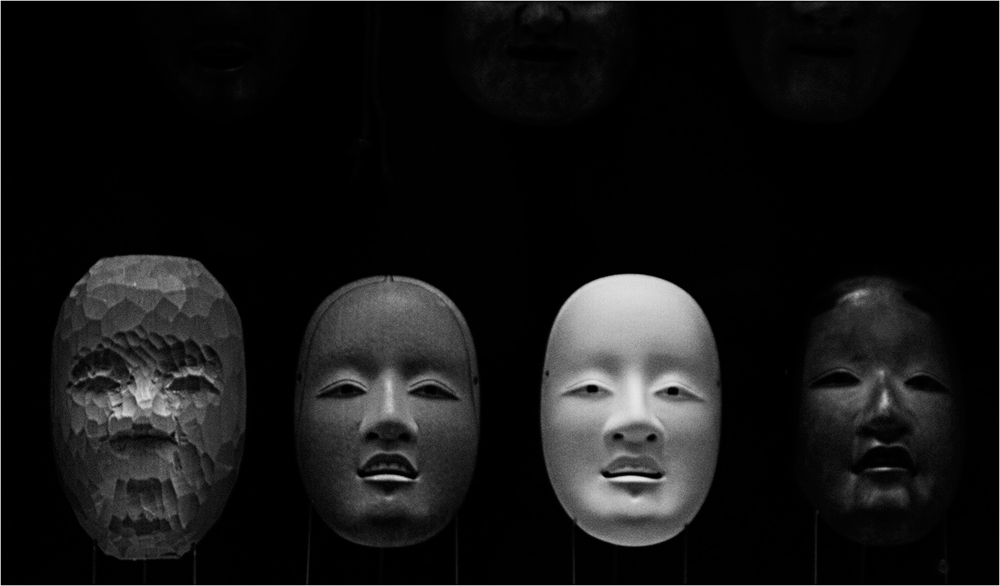 10. Money changes everything. As soon as you start getting paid for your work, the normal parameters of critique go away. It is no longer about how you executed your vision, it’s about the client’s vision. So even when they are wrong, they are right. You can either listen, or try to convince the client you know better (it happens, but this is not a long term strategy for success).
Critiques are an effective way to improve your work, but it is not an easy process. A really bad review of your photography can be soul crushing. Remember no one, and I mean no one, can tell if you are going to be a great and successful photographer. No one knows how hard you are willing to work to improve, that is up to you. Every great photographer has a history of crappy images. Every great artist has a history of bad reviews, the difference is they didn’t let bad reviews stop them. They kept working and getting better. I hope you will do the same.
All images ©Thann Clark
10. Money changes everything. As soon as you start getting paid for your work, the normal parameters of critique go away. It is no longer about how you executed your vision, it’s about the client’s vision. So even when they are wrong, they are right. You can either listen, or try to convince the client you know better (it happens, but this is not a long term strategy for success).
Critiques are an effective way to improve your work, but it is not an easy process. A really bad review of your photography can be soul crushing. Remember no one, and I mean no one, can tell if you are going to be a great and successful photographer. No one knows how hard you are willing to work to improve, that is up to you. Every great photographer has a history of crappy images. Every great artist has a history of bad reviews, the difference is they didn’t let bad reviews stop them. They kept working and getting better. I hope you will do the same.
All images ©Thann Clark
 It took awhile to put these critiques in their proper context, and judge whether they were accurate and if it was advice I should follow. With time I came to know what made a valid review and what should be actively ignored. Here is what I have learned about having other people comment on your work.
1. It is going to hurt. Ignore people who say you need a thick skin, or they are only criticizing your work and not you. Artists need to be sensitive. To create good work you need to see and feel things others don’t. Above all you need to care about what you create. If you are so distant from your images you don’t care when someone says, “it sucks,” then maybe you shouldn’t be an artist.
2. Consider the source. You should pay attention only to critiques coming from people who know more than you, or who offer a unique point of view. Evaluations should come from people you respect, and if possible from photographers who create the kind of work you want to create. Everyone has a bias - I’m not a big fan of landscape work. Even if your work is better than Ansel Adams, you will probably fail to excite me. That is my deficiency, not yours. The person looking at your work will not reveal their biases. You have to figure them out. Look at their work beforehand if they are a photographer. If you are being reviewed by an editor, then look at the work they choose for publication.
It took awhile to put these critiques in their proper context, and judge whether they were accurate and if it was advice I should follow. With time I came to know what made a valid review and what should be actively ignored. Here is what I have learned about having other people comment on your work.
1. It is going to hurt. Ignore people who say you need a thick skin, or they are only criticizing your work and not you. Artists need to be sensitive. To create good work you need to see and feel things others don’t. Above all you need to care about what you create. If you are so distant from your images you don’t care when someone says, “it sucks,” then maybe you shouldn’t be an artist.
2. Consider the source. You should pay attention only to critiques coming from people who know more than you, or who offer a unique point of view. Evaluations should come from people you respect, and if possible from photographers who create the kind of work you want to create. Everyone has a bias - I’m not a big fan of landscape work. Even if your work is better than Ansel Adams, you will probably fail to excite me. That is my deficiency, not yours. The person looking at your work will not reveal their biases. You have to figure them out. Look at their work beforehand if they are a photographer. If you are being reviewed by an editor, then look at the work they choose for publication.
 3. Know your intention. To get good feedback on your work, reviewers need to know what your were intending to do, what your goal for the image was. You must be clear on this. If your goal is not clear from the image, a good reviewer will ask you. If you can’t tell them why you took the shot, and what were trying to communicate, they can only do so much. If you don’t know your destination, how will you know when you get there?
4. Shut up and listen. Answer any questions offered but otherwise remain silent. Don’t try to defend your work, listen to all the reviewer has to say. Hold your questions until the end. Write down what they are saying. It is amazing how quickly you can forget what someone says in an emotional environment. They might have really liked your work, but you only come away with how they didn’t like the retouching, or some minor element. Listen then ask, and write it all down so you can review later.
3. Know your intention. To get good feedback on your work, reviewers need to know what your were intending to do, what your goal for the image was. You must be clear on this. If your goal is not clear from the image, a good reviewer will ask you. If you can’t tell them why you took the shot, and what were trying to communicate, they can only do so much. If you don’t know your destination, how will you know when you get there?
4. Shut up and listen. Answer any questions offered but otherwise remain silent. Don’t try to defend your work, listen to all the reviewer has to say. Hold your questions until the end. Write down what they are saying. It is amazing how quickly you can forget what someone says in an emotional environment. They might have really liked your work, but you only come away with how they didn’t like the retouching, or some minor element. Listen then ask, and write it all down so you can review later.
 5. Eventually you become your best critic. The more you know, the less people can tell you. As you shoot more and develop your style, there will only be a handful of people qualified to give you feedback. Once you know how to create images that match your vision, you are beyond most people’s ability to give you feedback. There will only be a few people who will be able to help you, treat them like gold.
6. Ignore the haters, and your family. Some people will always hate what you do, and some will always love it, ignore them both. Don’t let trolls make you feel bad about your work, they are not qualified to judge you. And unless you live in a family of photographers, what your mom thinks doesn’t count either. You can enjoy the nice comments, but keep them in check, they would love you even if you sucked, bear that in mind.
5. Eventually you become your best critic. The more you know, the less people can tell you. As you shoot more and develop your style, there will only be a handful of people qualified to give you feedback. Once you know how to create images that match your vision, you are beyond most people’s ability to give you feedback. There will only be a few people who will be able to help you, treat them like gold.
6. Ignore the haters, and your family. Some people will always hate what you do, and some will always love it, ignore them both. Don’t let trolls make you feel bad about your work, they are not qualified to judge you. And unless you live in a family of photographers, what your mom thinks doesn’t count either. You can enjoy the nice comments, but keep them in check, they would love you even if you sucked, bear that in mind.
 7. A good critique is not all bad. All critiques should start with what is good about the work, and then proceed to what needs improvement. If the reviewer only has bad things to say about your work, they either have a bias, don’t like you personally, are having a bad day, or don’t know how to critique. Is it possible someone sucks so bad at being a photographer there is nothing good to say about the work? It’s possible, but they would have to work very hard to be that bad.
8. A good review is specific. The comment “Your photographs suck,” and “Your work is amazing,” have something in common. They are both useless statements when it comes to growing as a photographer. They only tell you someone likes or doesn’t like your work. They do not tell you what is good and what is bad and that is what you need to know.
9. A good review tells you what to change. You need specific statements about your work so you know what to change for next time. “I would not use a wide angle lens on this type of portrait as it makes the subject’s nose look bigger,” is the kind of comment you want. It tells you what to change and why. It gives you something to test next time you shoot. If you are not getting specifics, then ask for them.
7. A good critique is not all bad. All critiques should start with what is good about the work, and then proceed to what needs improvement. If the reviewer only has bad things to say about your work, they either have a bias, don’t like you personally, are having a bad day, or don’t know how to critique. Is it possible someone sucks so bad at being a photographer there is nothing good to say about the work? It’s possible, but they would have to work very hard to be that bad.
8. A good review is specific. The comment “Your photographs suck,” and “Your work is amazing,” have something in common. They are both useless statements when it comes to growing as a photographer. They only tell you someone likes or doesn’t like your work. They do not tell you what is good and what is bad and that is what you need to know.
9. A good review tells you what to change. You need specific statements about your work so you know what to change for next time. “I would not use a wide angle lens on this type of portrait as it makes the subject’s nose look bigger,” is the kind of comment you want. It tells you what to change and why. It gives you something to test next time you shoot. If you are not getting specifics, then ask for them.
 10. Money changes everything. As soon as you start getting paid for your work, the normal parameters of critique go away. It is no longer about how you executed your vision, it’s about the client’s vision. So even when they are wrong, they are right. You can either listen, or try to convince the client you know better (it happens, but this is not a long term strategy for success).
Critiques are an effective way to improve your work, but it is not an easy process. A really bad review of your photography can be soul crushing. Remember no one, and I mean no one, can tell if you are going to be a great and successful photographer. No one knows how hard you are willing to work to improve, that is up to you. Every great photographer has a history of crappy images. Every great artist has a history of bad reviews, the difference is they didn’t let bad reviews stop them. They kept working and getting better. I hope you will do the same.
All images ©Thann Clark
10. Money changes everything. As soon as you start getting paid for your work, the normal parameters of critique go away. It is no longer about how you executed your vision, it’s about the client’s vision. So even when they are wrong, they are right. You can either listen, or try to convince the client you know better (it happens, but this is not a long term strategy for success).
Critiques are an effective way to improve your work, but it is not an easy process. A really bad review of your photography can be soul crushing. Remember no one, and I mean no one, can tell if you are going to be a great and successful photographer. No one knows how hard you are willing to work to improve, that is up to you. Every great photographer has a history of crappy images. Every great artist has a history of bad reviews, the difference is they didn’t let bad reviews stop them. They kept working and getting better. I hope you will do the same.
All images ©Thann Clark





